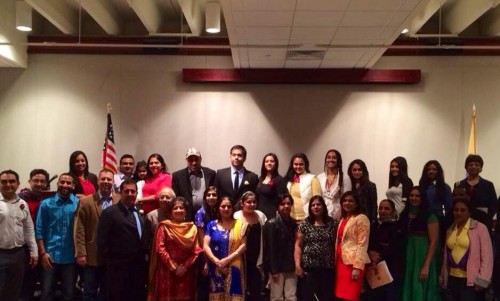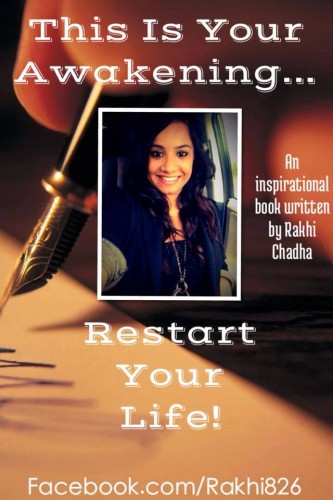
For Women’s History Month in March, a few BG writers attended an uplifting event to discuss and garner the state of women at New Jersey City University. We were also excited to support a fellow BG writer, Rakhi Chadha, who gave her first motivational speech during the event.
Saraswati Cultural Association of New Jersey, a nonprofit founded by Anita Chadha, in collaboration with New Jersey City University’s Professional Studies Department, sponsored the event – Appreciating Women: Past, Present and Future.
Meenu Chadha, secretary of SCANJ, facilitated the discussion by inviting women from various organizations to speak on behalf the work their nonprofits do.The nonprofits varied from help in education, shelter, food, domestic violence and voting registration.

The panelists present included Neisha Louhar from Bolo Behen, an organization offering services to women suffering from domestic violence, Dawn Clarke from League of Women Voters of New Jersey, a nonpartisan group that advocates for certain legislation after careful study and consensus of our members, and Devangi Raval from Manavi, a women’s rights organization committed to ending all forms of violence and exploitation against South Asian women living in the U.S. Then we heard from, Dr. Kanan Patrawalla from Share and Care Foundation, an organization dedicated to opportunities for deserving, economically challenged women and children of India by partnering with communities, philanthropists and local charitable organizations. The final two sitting on the panel were Deborah Hurley from the York Street Project, an organization breaking the cycle of poverty by providing housing, education and child-development with life-skills training, and Marcella Williamson from Women Rising, dedicated to helping women in need of a job, safety from domestic violence, freedom from substance abuse and safe homes for children.
Each representative had the opportunity to speak about their organization’s cause and what they do to help women in need.
When asked what the community at large can do to help victims of domestic violence or homelessness –
Devangi said “continue to spread awareness.”
Dawn said “engage men as stakeholders.”
Marcella said “be patient and non-judgmental”
In addition to the panelists, BG Rakhi gave her first motivational speech from her upcoming book, “This Is Your Awakening…Restart Your Life!”
This was my first time not facilitating a discussion panel with experts from so many fields. It was definitely heart warming to listen to the stories of women that have been helped by them. I loved the group of people who attended because they gave me a lot positive feedback about my speech.”

Feature image: BGs Rakhi Chadha, Kamini Ramdeen, Trisha Sakhuja and Sheena Pradhan attended the event in New Jersey City.




